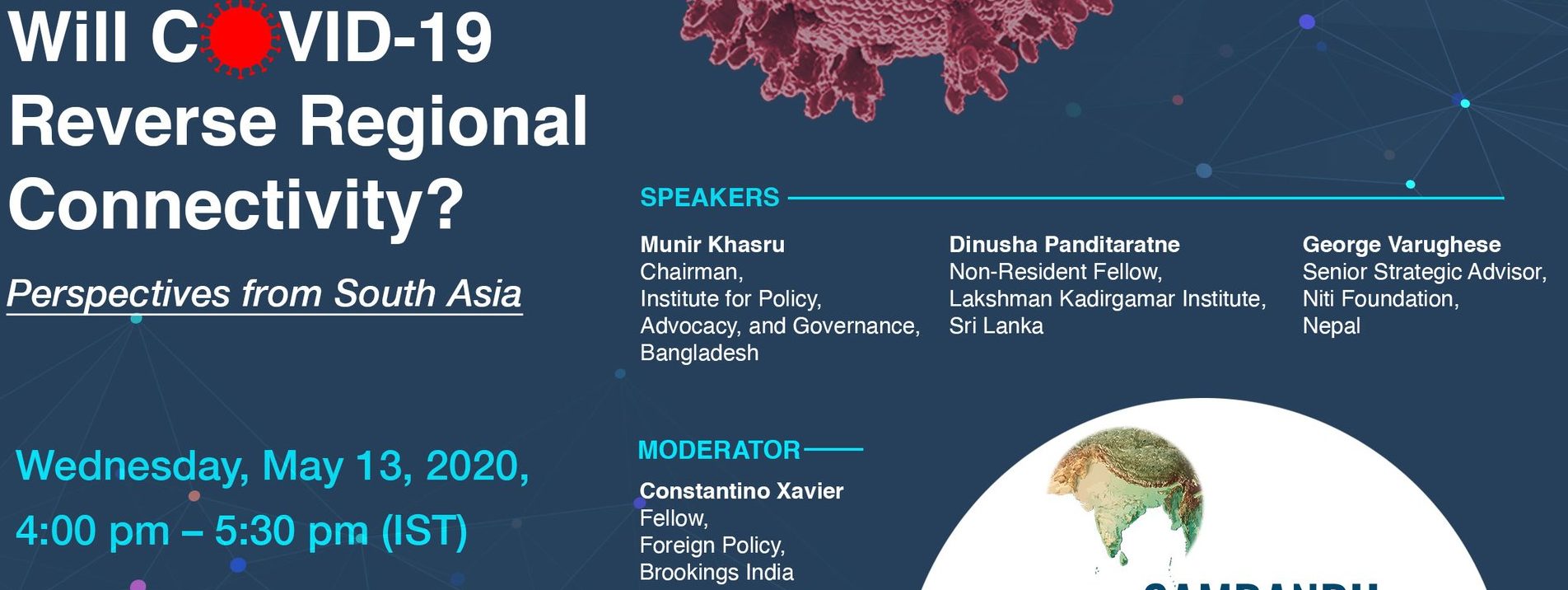
Reading Time: 2 min read
Recent years have seen momentum in deepening regional connectivity in South Asia. However, some experts argue that the COVID-19 pandemic presents a risk of reversing these gains, with governments adopting protectionist tendencies in the wake of collapsing economies. To discuss how countries in South Asia are responding to the crisis, Brookings India gathered a panel of scholars from the region for an online discussion titled Will COVID-19 Reverse Regional Connectivity?
Nonresident Fellow of LKI, Dr. Dinusha Panditaratne offered a perspective from Sri Lanka. She provided an overview of the Sri Lankan government’s decisive approach to controlling the spread of the virus, through border controls and other stringent measures, which independent surveys indicate have attracted a high degree of public support.
Responding to questions on protectionism in Sri Lanka, she said that “the outcomes are being driven by economic realities,” noting that the economic impact of the pandemic has been severe in Sri Lanka, coming on the heels of high debt levels and low foreign currency reserves. It is this economic situation, more than an ideological attachment to protectionism, that is driving the controls on imports, which have been imposed until July except for essential goods and inputs for exports. That said, however, Dr. Panditaratne observed that there is an underlying paradox that Sri Lanka has yet to resolve in the long term, of having an incredible location at the centre of global trading routes while also being ambivalent towards the outside world, for historical reasons. That paradox remains in the background, while economic needs are driving the current decision-making.
Commenting on the role of the South Asian Association for Regional Cooperation (SAARC) in these times, Dr. Panditaratne stated that, in the long term, SAARC can nurture a more cohesive South Asian identity through cultural and people-to-people links. She commented that these are often taken for granted but need to be actively developed. Such links are strengthening between individual South Asian countries and China.
From a Sri Lankan perspective on regional bodies, she noted that the Indian Ocean Rim Association (IORA) has strong potential as a complementary organization to SAARC and the Bay of Bengal Initiative for Multi-Sectoral Technical and Economic Cooperation (BIMSTEC), Several member states of IORA are well-resourced and have ability to push through IORA’s security, scientific, and developmental goals, which also fit well with Sri Lanka’s future needs. The continuing Blue Carbon Hub initiative is one example.
In the context of India’s future role in the region, Dr. Panditaratne observed that while China has been able to brand itself as the ‘physical infrastructure’ provider for the region, there is an opening for India to be a ‘digital infrastructure’ provider to the region – especially in current times which have shown that ramping up digital capacity is vital to economic growth. However, given investments from China in this space (for example, Alibaba’s investment in Daraz), this window too may be closing quickly.
Dr. Panditaratne was joined by Munir Khasru, Chairman, Institute for Policy, Advocacy, and Governance, Bangladesh and Dr. George Varughese, Senior Strategic Advisor, Niti Foundation, Nepal. The panel discussion was moderated by Dr. Constantino Xavier, Fellow, Foreign Policy & Security Studies, Brookings India.
Please click here to access the text of Dr. Panditaratne’s remarks and this link for a video recording of the full panel discussion.



